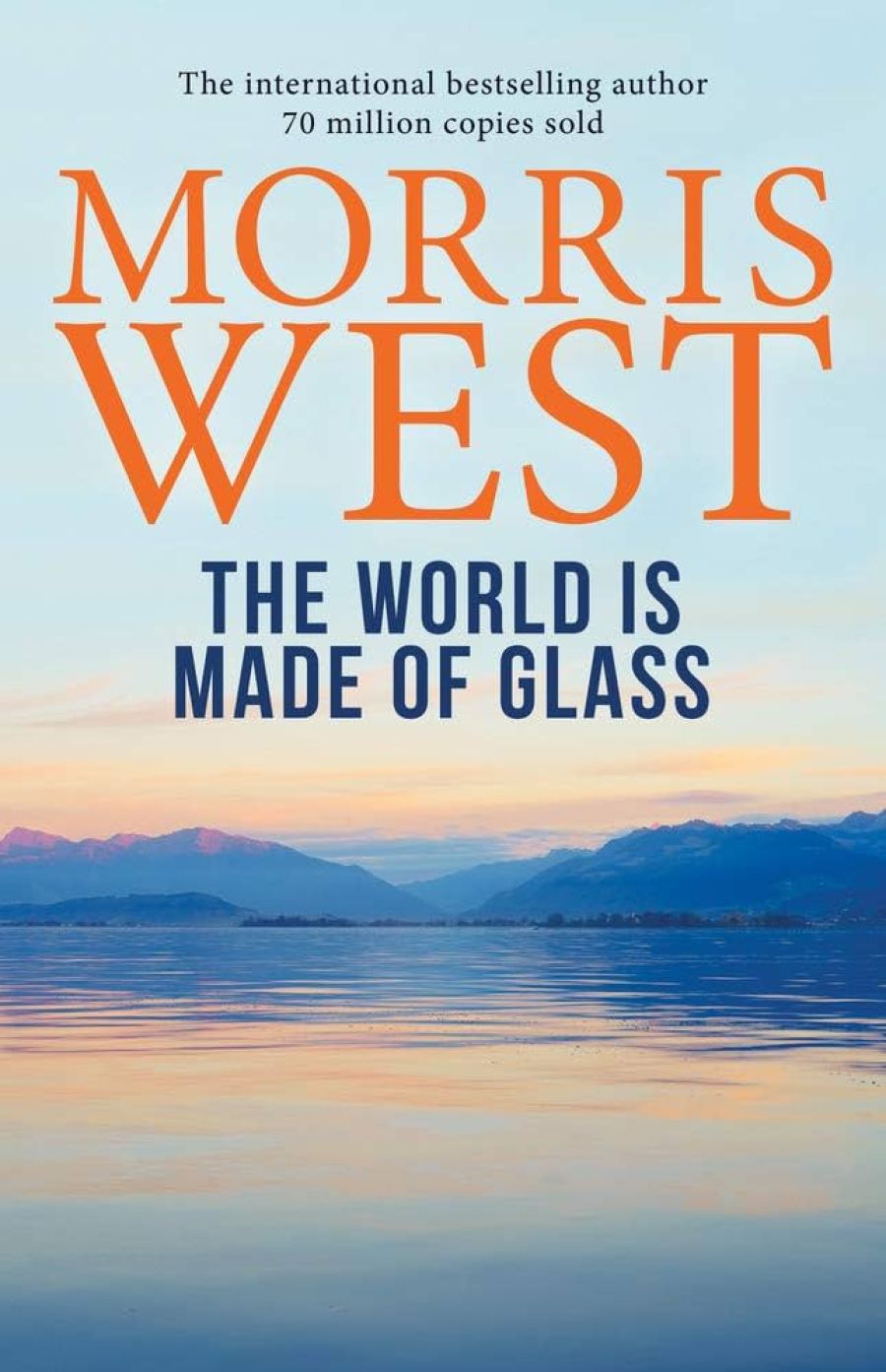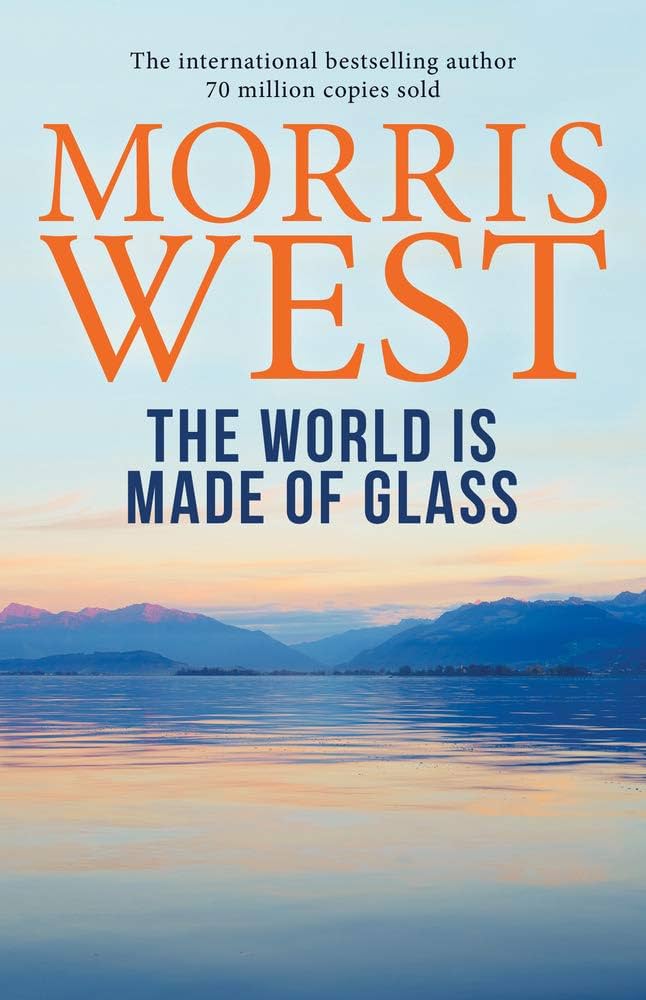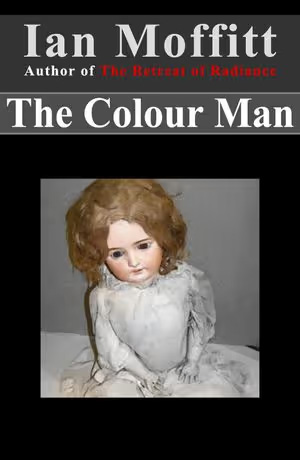
- Free Article: No
- Contents Category: Fiction
- Review Article: Yes
- Article Title: Tales of Suspense
- Online Only: No
- Custom Highlight Text:
Despite the advent of television, people apparently still like to read good stories. These novels, the first by a well established writer and the other by a former journalist now earning a deserved reputation as a novelist, provide both the kind of entertainment value offered by a good television series and a bonus of the kind of intellectual stimulation which is normally expunged by the masters of the screen. Of the two, I would guess that Moffitt's is the better commodity for the medium, but this is only because West spends more of his space writing about ideas which Moffitt is content to leave implicit, and which our television masters would regard as anathema.
- Book 1 Title: The World is Made of Glass
- Book 1 Biblio: Hodder and Stoughton, $18.95 pb, 315 pp
- Book 1 Cover Small (400 x 600):

- Book 1 Cover (800 x 1200):

- Book 2 Title: The Colour Man
- Book 2 Biblio: Collins, $15.95 pb, 239 pp
- Book 2 Cover Small (400 x 600):

- Book 2 Cover (800 x 1200):

Not that West’s novel lacks anything in either suspense or titillation. He offers his readers an intimate view of the habits of European high society in the gilt decade that led to the first world war, and adds a glimpse of solidly teutonic and provincial bourgeois respectability and sensuality in the Swiss household of Dr Carl Jung, pioneer psycho-analyst, who at the time of the novel is trying to resolve his simultaneous infidelity to Freud and to his own wife.
West takes a character mentioned fleetingly in Jung’s notebooks and develops her as a fully-fledged and suicidal member of the haute-monde of early twentieth century Europe. In desperation she comes to Jung for help, and West reconstructs time and characters to enable us to share both the sexual excitements of power and the intellectual excitement and emotional frustration of an aspiring scientist. As a further complication, he adds a possible and problematic murder. Wisely, he does not attempt to resolve the consequent dilemmas within his fictional framework but hands them over to a handy proxy father confessor to settle.
Like West, Ian Moffitt is an accomplished story-teller, but in his case the murder is potential rather than past. The suspense is thus doubled, as the reader has to work out both who is to do it (whowilluvdunnit) and whether he or she will succeed. Without revealing the answer, I can state that the reader will be harrowed in following the narrator to find it.
But Moffitt is not content merely to tell a tale. His novel is also about the break-up of a marriage – although most of the breaking seems to have occurred before either novel or marriage begins – the relationships between generations, and the enigmatic qualities of Manly and the Sydney Harbour. His view of the young is admirably bleak, but he portrays the old with quizzical sympathy. The world he portrays will remain with his readers long after they have forgotten the details of the plot which has kept them reading in the first place.


Comments powered by CComment